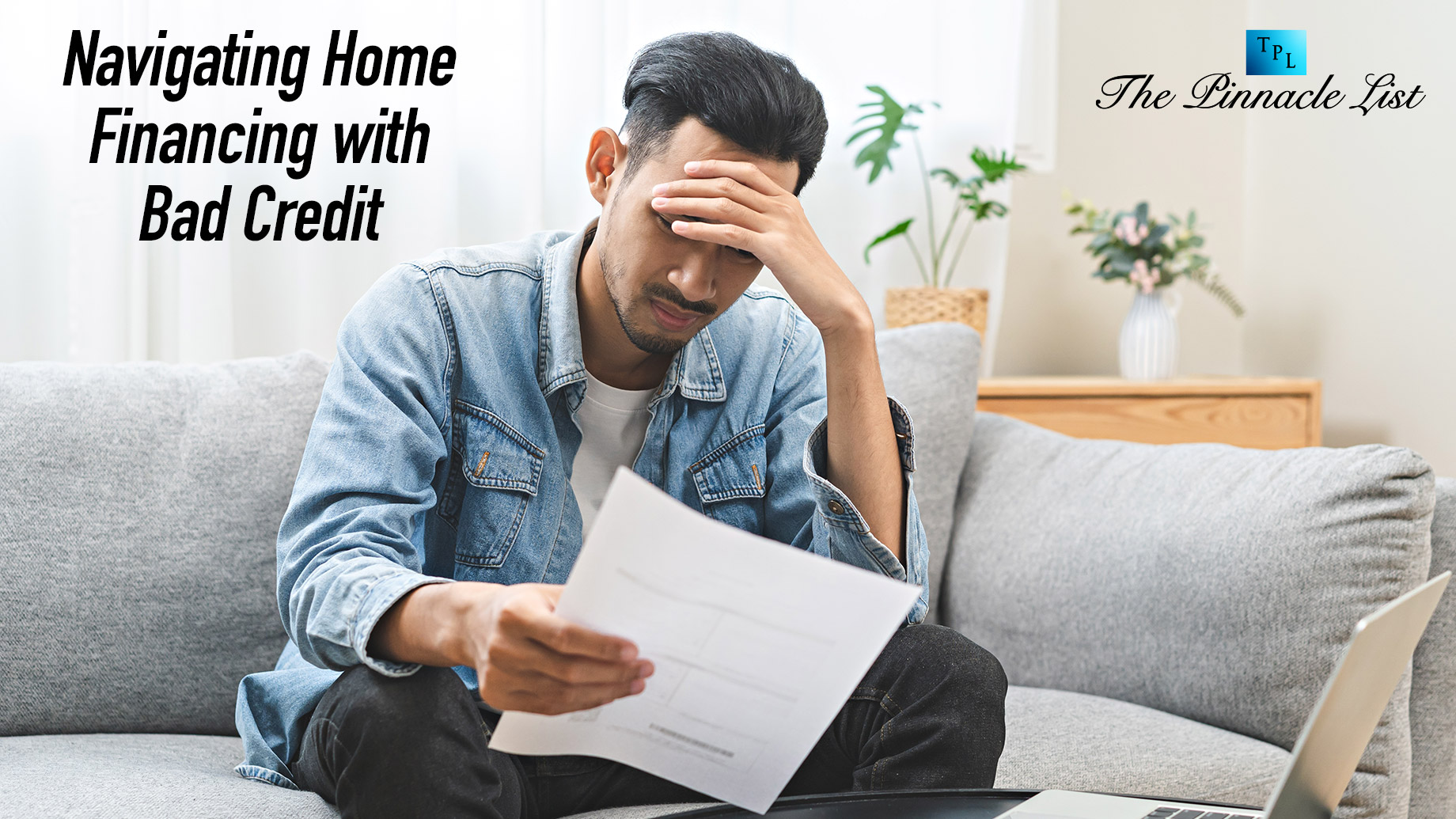
Owning a home with a bad credit score isn’t impossible; you just have to think outside the box.
If you’ve been denied by traditional lenders or feel stuck in a financial rut, this guide offers unique strategies for navigating home financing and unlocking your path to homeownership.
1. Turn to FHA Loans
Federal Housing Administration (FHA) loans are specifically designed to accommodate borrowers with low credit scores.
Unlike conventional loans, they accept applicants with low scores (albeit a higher down payment).
How It Helps You
- Borrowers with credit scores of 580+ qualify for down payments as low as 3.5%.
- Even those with scores 500-579 can secure a loan with a 10% down payment.
- Government backing reduces lender risk, increasing your chances of approval.
Pro Tip:
Shop around for FHA-approved lenders. Terms and rates can vary significantly, so find one that offers the most favourable conditions.
2. Consider a Rent-to-Own Agreement
If you’re not ready for a mortgage, rent-to-own agreements allow you to lease a home with an option to buy later.
A portion of your rent goes toward the future purchase.
Why It’s Effective
- Gives you time to repair your credit while securing your dream home.
- Locks in the current home price protect you from future market increases.
Pro Tip:
Negotiate clear terms, including a reasonable purchase price and a fair percentage of rent to be credited toward your down payment.
Work with a Parktown Residence real estate attorney to avoid pitfalls.
3. Leverage Manual Underwriting
Manual underwriting is a process where lenders review your financial history in detail instead of relying solely on your credit score.
If you have consistent income, low debt, and a strong rental payment history, this could be your golden ticket.
How It Helps You
- Lenders assess broader factors like rent, utility payments, and savings.
- Ideal for borrowers with thin credit files or one-time credit issues.
Pro Tip:
Keep detailed records of consistent payments (e.g., rent, utilities) to present during manual underwriting. This will strengthen your case.
4. Explore Community and Nonprofit Programs
- Organisations like NACA (Neighborhood Assistance Corporation of America) specialise in helping low-income and bad-credit borrowers secure affordable mortgages.
- These programs often have minimal credit requirements or none at all.
Why It Works
- Programs negotiate lower interest rates and fees on your behalf.
- Counselling and budgeting workshops ensure long-term success as a homeowner.
Pro Tip:
- Check local housing authorities for additional state- or city-based programs.
- Some offer grants for down payments or closing costs. It’s also a great tax-saving hack!
5. Tap Into Alternative Credit Data
Traditional credit reports might not show your true financial reliability.
Many lenders now consider alternative credit data, such as rental history, utility payments, and subscription services like Netflix.
How It Works
Services like Experian Boost let you add non-traditional payments to your credit report.
Demonstrates consistent financial responsibility outside of traditional credit systems.
Pro Tip:
Start reporting alternative credit data months before applying for a mortgage to build a stronger case.
6. Down Payment Assistance Programs
Many first-time buyers aren’t aware of DPA (Down Payment Assistance).
These programs provide grants, forgivable loans, or low-interest loans to reduce your upfront costs.
Why It’s a Game-Changer
- Larger down payments increase lender confidence, even with bad credit.
- Some programs exclusively cater to low-income or first-time buyers.
Pro Tip:
Visit the HUD specialist and consult local housing agencies to discover programs in your area.
7. Partner with a Co-Signer for Better Approval Odds
Trusted family or friends with great credit can co-sign for you, increasing your chances of approval.
This partnership leverages their financial credibility to counterbalance your bad credit.
How It Helps
- Opens closed doors and better loan terms with lower interest rates.
- Lenders see the co-signer as a fallback option, reducing their risk.
Pro Tip:
Clearly outline repayment responsibilities in writing to protect both parties and maintain trust.
8. Start Small with Alternative Housing Options
If traditional mortgages feel out of reach, consider starting with smaller investments, like mobile homes or fixer-uppers.
These options often come with easier financing terms and lower credit requirements.
Why It Works
- Builds equity faster without the financial strain of a large loan.
- Renovation loans like FHA 203(k) combine purchase and repair costs, giving you more control over the property’s value.
Pro Tip:
Look for properties in up-and-coming neighbourhoods to maximise equity growth over time.
9. Build Credit Strategically Before Applying
If you’re not in a rush, spending 6-12 months improving your credit can make a world of difference.
Focus on paying down debts, disputing inaccuracies on your report, and avoiding new credit inquiries.
Steps to Take
- Use secured credit cards to rebuild your score.
- Reduce your credit utilisation ratio by keeping balances below 30% of your credit limit.
- Monitor your progress through free tools like Credit Karma.
Pro Tip:
Enroll in a credit-building program offered by banks or credit unions for faster results.
10. Seek Owner Financing
In owner financing, the person selling acts as the lender, allowing you to bypass banks altogether.
You make monthly deposits directly to the seller under agreed-upon terms.
Why It’s Unique
- Ideal for buyers who struggle to meet traditional lending criteria.
- Flexible terms, including smaller down payments and interest rates tailored to your situation.
Pro Tip:
Negotiate favourable terms and ensure everything is legally documented with the help of a real estate attorney.
Conclusion
Bad credit doesn’t have to keep you from owning a home!
Utilise these options we presented, think creatively, and leverage even lesser-known strategies.
Many readers have turned roadblocks into stepping stones by doing so. The key is to act decisively, explore multiple options, and never give up on your goal.
Remember, homeownership isn’t just about credit; it is about persistence, strategy, and knowing where to look for help.